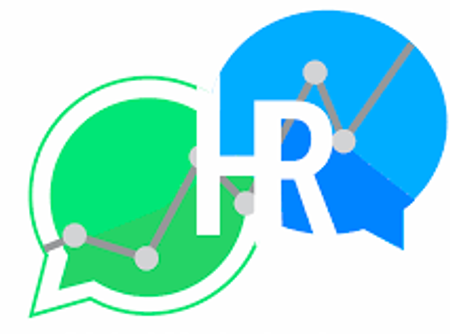
“At what time will this store open tomorrow?” enquired the customer.”9.30 a.m.” replied the chat-bot. Yes, a chatbot. And its just one of the million technologies being used in today’s era by everybody from freelancers and established firms to promote their services/ products. This has led to a huge decrease in time to market and at the same time growth of competitive digital marketspaces. A survey conducted by Fortune among CEOs from various companies across the globe found out that 67% of them thought that the companies they were leading were ‘technology’ companies. And this use of technology is what sets a firm apart. Essentially, making use of the digital platforms to promote a product is Digital Marketing. What makes the current scenario more interesting is that since companies are spending most of their fortune on technology, they want to spend as much on their employees. Because with the introduction of ‘digitization’, not only the customers’ behaviour will change but the way of reaching out to them will also change. And this change demands questioning the status quo. The gap between customers and employees needs to be bridged and this calls for entirely new strategies of managing people.

Firms can be acquired. Technologies can be learnt. But what can’t be owned are people. Humans make technology come alive and operative. It is them who create new things. For instance, let us imagine that you have a firm which helps people in booking vacations. Now, your competitors also have the similar technology that enables the customers to make bookings in seconds. The increased transparency due to technology makes it easy for your competitors to attract potential clients. In such a situation, the two ways to improve your position in market are having great employees in front line, talking to whom makes the customers believe that they’ll have a great vacation which is worth what you’re charging, or coming up with new products and technologies at an unseen speed which again requires talented UX designers, developers, etc. That’s why all the companies which think of future believe in the importance of HR functions.
And hence, all the great companies ensure to put a great deal of effort to maintain a good workplace, sometimes by giving health benefits to their employees or giving them platforms to voice their problems by setting up grievance redressal mechanisms. As the firms ramp up their process of digital marketing, the employees have an altogether new role to play. Although they still must ensure smooth flow of work, they also have to adapt the to the rapidly changing environment they’re dealing with.
Conventionally, the four roles of HR identified are ‘administrative expert’, ‘employee champion’, ‘strategic partner’ and ‘change enabler’. Till now, the focus was on the first two, but with the emergence of digital marketing, the emphasis is shifting on the latter two. As HR is now becoming a profit centre, it is important for them to transform the way they operate and that requires being able to quantify their initiatives because “we all love data!”. A company’s strategy is as good as its people think it is. Involving employees in the decision-making process and instilling a sense of empowerment in them will make sure that the strategies are adopted at a faster rate and new challenges are dealt with in the right spirit.
As per the article ‘The next era of HR: Digital Marketing’, the role of an HR in this era of digital marketing is three-fold- Culture Architect, Talent Strategist and Rewards Designer.

Being a culture architect means ensuring that the people practices that are being driven help the employees in forming a digital mindset up, down and across the organization because a brand has is built from inside out. The role of HR as a talent strategist continues to be as crucial as ever. The shift is seen in the philosophies which the companies followed for talent acquisition and retention. Focus is now shifting from hiring experienced employees form outside to developing the entry-level talent. This requires creation of an altogether new strategy for training and charting out new career progression paths. Aligning employee behaviour with the customer outcomes makes it necessary for HR to be an intuitive rewards designer by revamping the bonus plans and performance-linked policies.
Although the partnership between HR and marketing starts with analysis of data and internal culture of the organization for building the brand, the actual connection between these two can be observed only when an external, customer-driven approach is injected into the talent acquisition strategy of the firm. From a recruiter’s lens, it is important to stick to ‘candidate first’ policy so that the right candidates are able to find about the firm, connect with it and learn about its culture. And digital marketing has redefined the methods used by companies to improve their visibility.

Digital Marketing is all about people and hence, it has to be endorsed
by the people to work more efficiently with minimum efforts. HR needs to
partner with marketing to improvise their story-telling capabilities and make
the brand more appealing to the customers by connecting with them by giving it
a human-touch. The mindset needs to be changed from “tell me” to “show me”, and
this requires a change in the way employee engagement activities are run. It
can now not be a “Command me, I’ll do it” atmosphere in the firms anymore, it
has to be a “Let’s do it together” space and only HR can make it possible by
playing a strategic role and being a change agent. The transformation that HR
has undergone in the past few years has been quite dynamic but unstructured.
Now that things are become more and more hazy day by day, it is inevitable not
to make the HR empowered enough to drive growth.
